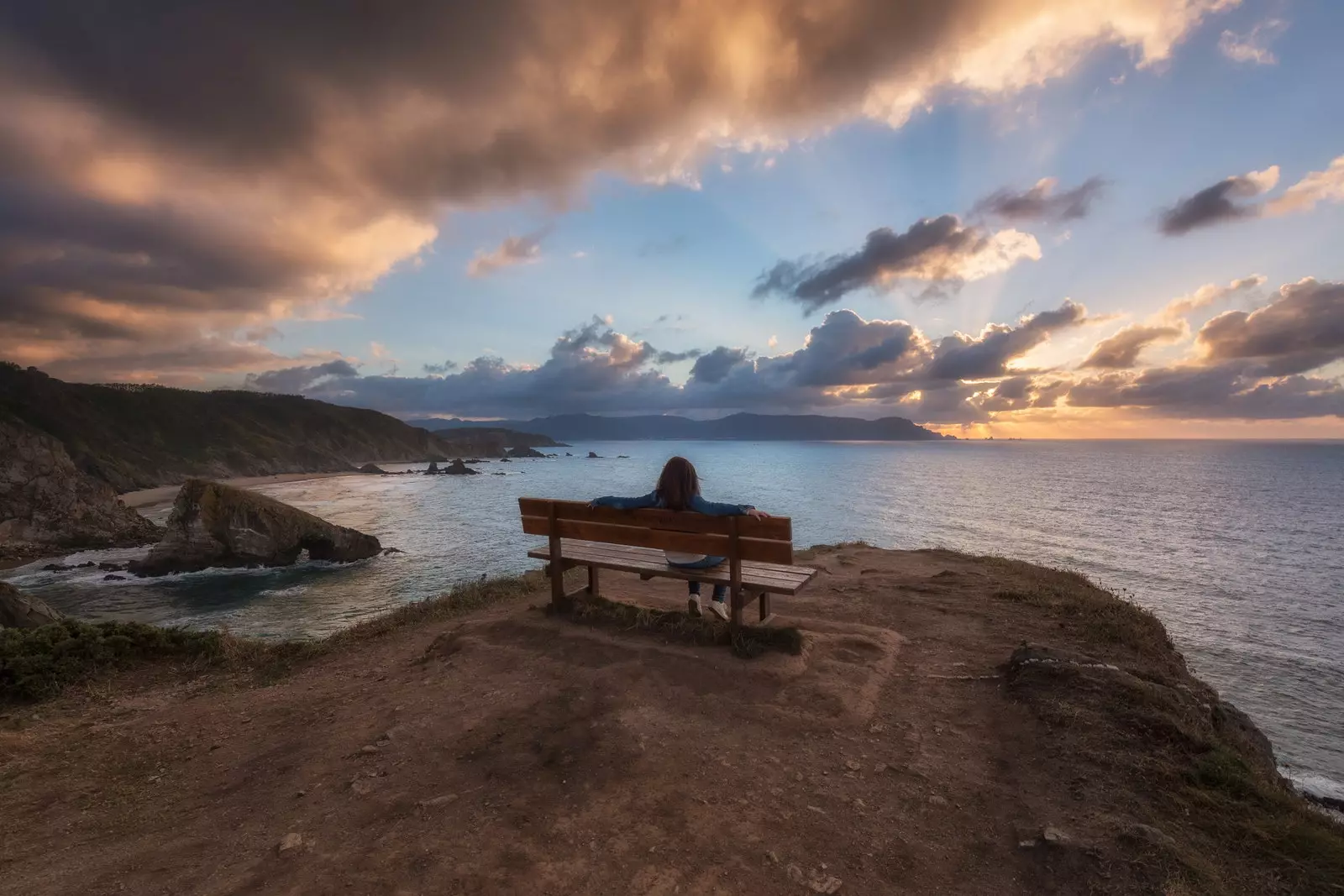
The 'most beautiful bench in the world', on the cliffs of Loiba, Galicia.
Her heart has taken root in the countryside and it is to her land, Galicia, that her poems are sung. Olga Novo's writing (A Pobra do Brollón, 1975) is an ode to the rural world that has become so fashionable due to the pandemic. just a month ago, She received the National Poetry Award for her latest and fifth collection of poems, Feliz Idade, a bridge between the previous generation –the deceased father– and the later one, her daughter. “This recognition has aroused a lot of interest. She had never received so many invitations to participate in recitals. But I live with my mother and I am not going to risk her health by going to an act”, she admits her over the phone.
The writing of Novo in Galician is a political act. Always very critical of the work of the authorities whom she blames for having suffocated the countryside and allowed the loss of speakers in her language, she, also an essayist, magnetizes us with her telluric verb and her erotic sensuality of great expressive force. In her poetics, the landscape is transformed into a body and the body into a landscape. The family, agriculture and plant life are intertwined in poems that invite us to explore Galicia with closed eyes and open soul, a visit that also evokes this interview.
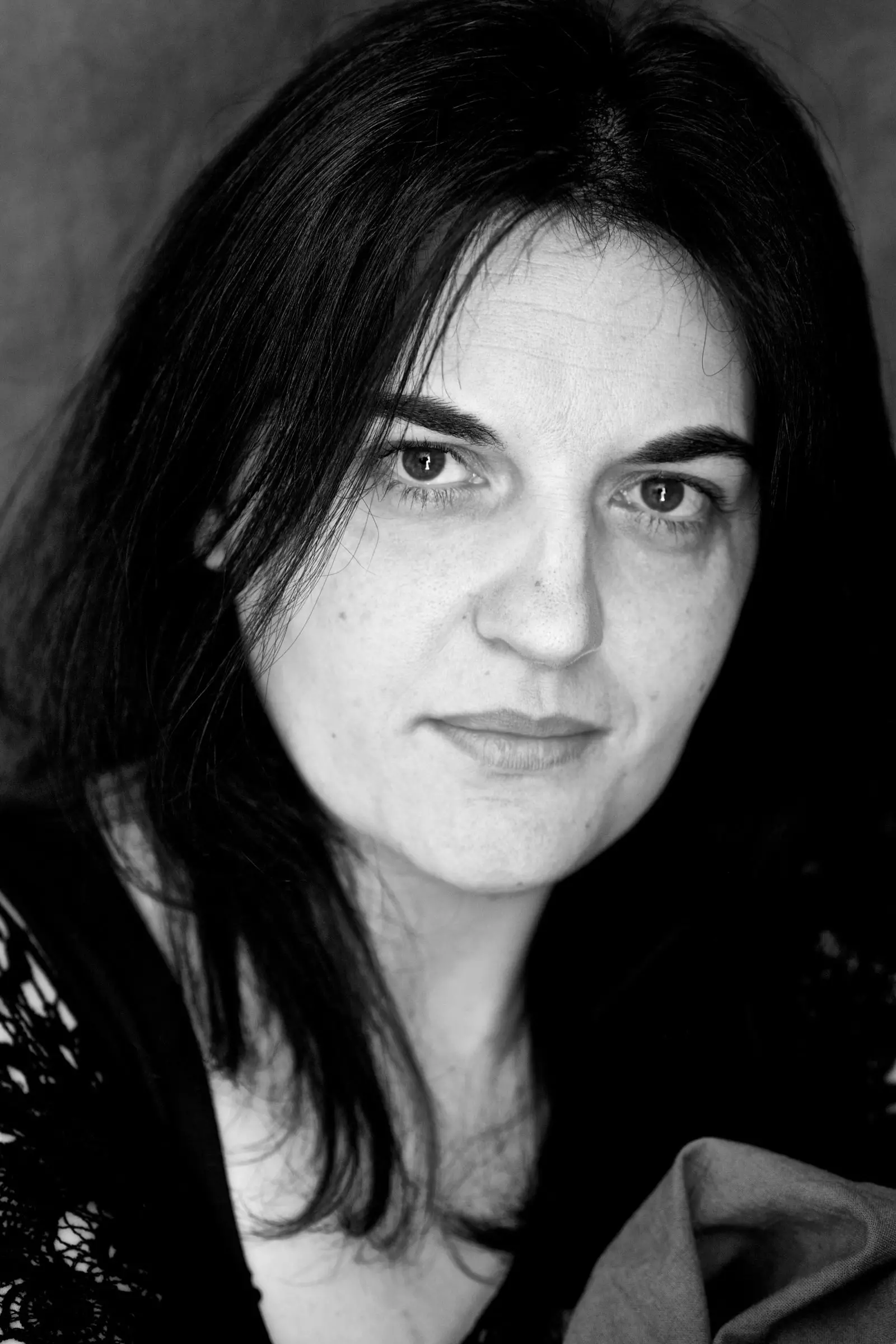
Portrait of Olga Novo, National Poetry Prize.
RETURN TO THE LANDSCAPE
Conde Nast Traveler: You were born in Vilarmao, a village in Lugo, in 1975. When you want to return with your imagination to that town in the municipality of A Pobra do Brollón, what image do you conjure up?
Olga Nova: I rarely return to Vilarmao with my imagination, because I visit it practically every day. It is my center, my root and is consciously and unconsciously present in all my work. When I have moved away from my home, I have summoned it. While I was living in French Brittany, where I lived for eight years, I used to write with my body in France and my mind in Galicia.
CNT. Your poetry is very sensory: did you tend to see the world through your five senses as a child?
O.N. I have memories since I was a child sensory impact of nature, of the field worked with the hands . The experience of the field is natural to me, it is not an aesthetic position. I come from a family of humble farmers.
CNT. What smells do you remember fondly from Vilarmao? What flavors?
O.N. I remember the smell of fresh bread, the freshness of the water from the fountain, the deep smell of cow dung crossing space, that of the earth wet after the rain, that of the recently plowed land, that of the grass when it has just been cut, the smell of my mother's cabbage broth, the fatty smell of the sheep's wool, the smell of the hot blood of the pig that we churned in a bucket , the smell of anthracite from my father when he came in from the meadow, the perfume of cosmos from my mother.
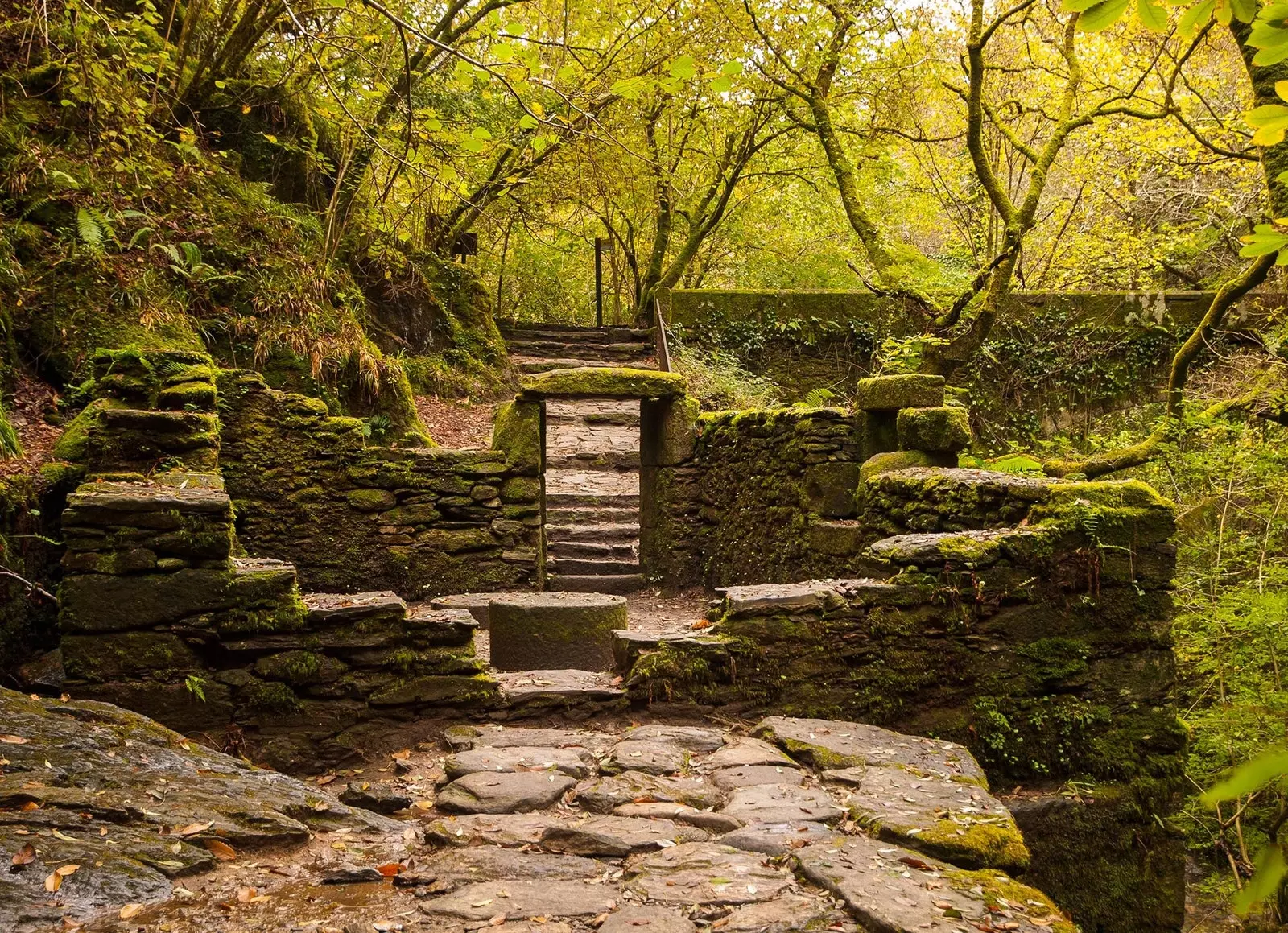
I remember the smell of freshly baked bread, the freshness of the water from the fountain, that of the earth wet after the rain...
READINGS THAT MARK
CNT. * What landscape has marked you deeply? *
O.N. Since I was little, Stendhal syndrome has haunted me. Vilarmao is at the top of a valley from where you can see the Sierra de O Courel; I love losing sight of the horizon; you can see a hundred kilometers around. **He loved to go up to the meadow with the cattle and read as much as he could while the cows grazed. **
CNT. What were those first readings?
O.N. My first approach to literature took place orally. I keep the vivid memory of my mother reciting ballads to me when I was three years old. I didn't know that it was poetry, but I was attracted by its musicality. She always asked for more. When I discovered that those ballads had been read to him by my grandmother, I was amazed: women occupy a fundamental place in the transmission of Galician culture. In my house there were no books, nor a dictionary. The school manual collected various poems and I read them aloud while listening to the bellowing of the cows in our house. My sister, eight years older than me, has always had a vocation as a pedagogue. She ended up studying teaching. We enjoyed walking together in the meadow and reading books, each one a page. This is how we finished classics such as Lazarillo de Tormes, La Metamorfosis and El Quijote.
CNT. That image reminds me of the Brontë sisters… Does Vilarmao look like Yorkshire?
O.N. No: it is less wild and harsh. My land is sweeter.
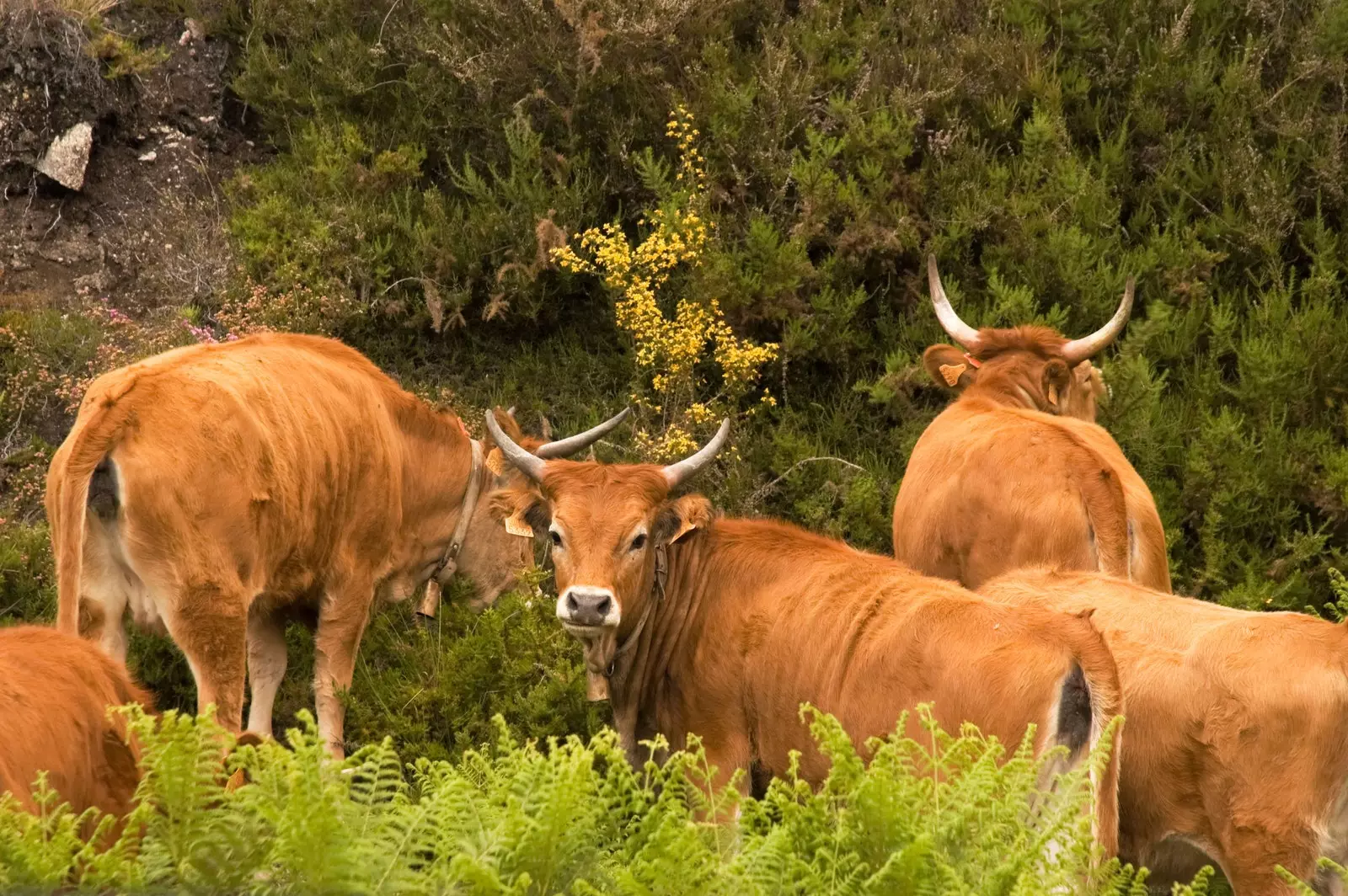
Cachena cow calves in Olelas.
WILD NATURE AND FEELING OF COMMUNITY
CNT. *In collections of poems such as Feliz Idade, winner of the National Poetry Prize, the landscape and vegetation, very present, become allegories. In your poetry there is the intention to link feelings to the land, to the ancient rituals of work, to wild nature and to the elements. Why? *
O.N. It is not intentional. It happens naturally. Poetry should be an exercise in authenticity, never a literary pose. I never consider a collection of poems as an artifact, but as a vital experience. Writing for me is a necessity. When I had already learned all the poems in the school manual, I started to write them. He was seven or eight years old. My village is my emotional landscape.
CNT. Your verses are not free from political positioning.
O.N. All thought is politics. My idea has always been to poeticize an area in danger of extinction. The economic autonomy of the rural world is of no interest, which is why the powers have clamped down and dismantled the autarkic lifestyle of the villages, little devoted to capital. I have witnessed the extinction of my village. I grew up surrounded by houses inhabited by people and animals; three left. Infrastructures have not been built so that people can live, work and have children in the countryside, nor have decent conditions been guaranteed. Scary psychological consequences: depression rates for older people in Galicia are overwhelming. Imagine the immense solitude that surrounds them. It seems incredible, especially considering that in many of these towns there are castros from pre-Roman times.
CNT. There is talk of a return to the countryside, of a new rural renaissance: with the pandemic there are those who move to town. Is it more than just a fad?
O.N. It is something punctual. When the danger and fear pass, the city will prevail again. In addition, no matter how much repopulation there is, the relational culture of the villages has been lost: that deep feeling of community where the neighbor was also a member of the family. As a child, the gates were always open and I went from house to house. Now the villages look like a collection of chalets.
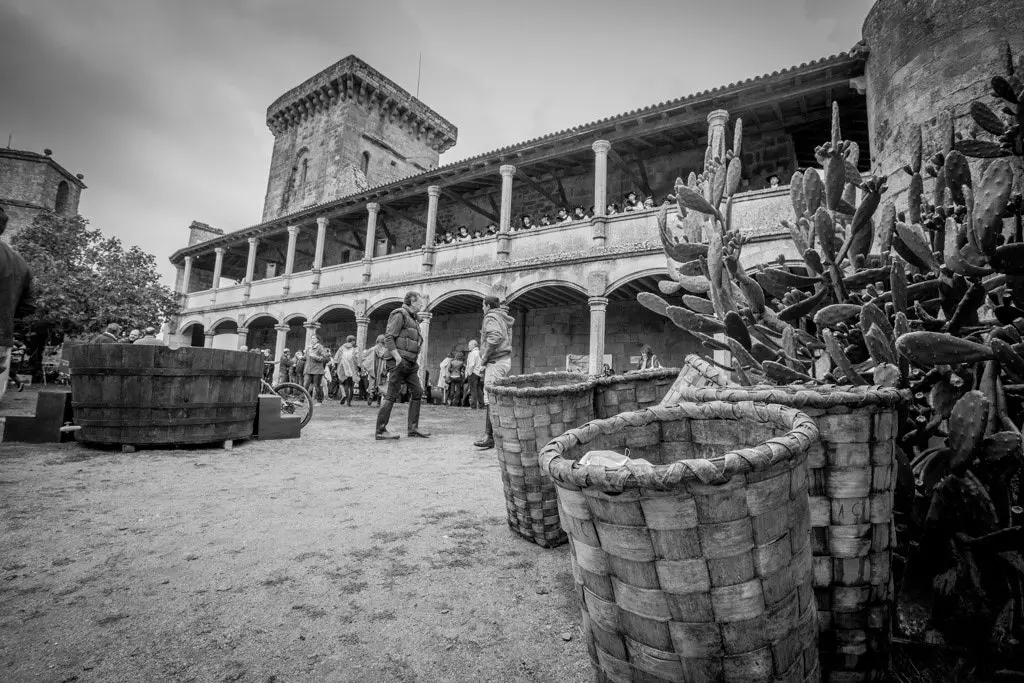
The sense of community in the villages has been lost.
ABOUT SHADES AND FASHIONS
CNT. *The ocher tones of autumn in the Galician mountains are disappearing with so many eucalyptus plantations... there is talk of a "green desert", what do you think? *
O.N. It has been a problem for years, especially on the coast where non-native species expand. It is a metaphor for a short-term society looking for quick profit. The oaks or chestnut trees that were planted in the past for future generations are no longer of interest because they take a long time to bear fruit or wood.
CNT. Women occupy an important place in Galician culture; Galician mothers are Rosalía de Castro and Emilia Pardo Bazán. How does life and culture in Galicia condition that the literary reference is a woman?
O.N. Calm the anguish: as a writer you have a woman's voice that has written in your language about your culture. In addition, socially, the north is based on a matriarchy. Let us remember that Galician women were “widows of the living”, as Rosalía de Castro wrote: they remained as head of the family when the men had to emigrate. But beware: there is still a lot to do to achieve equality.
CNT. Galician poetry lives a moment of splendor; many poets have been awarded in recent years. What has encouraged this creative boom?
O.N. I wouldn't call it boom in Galicia nothing happens. It is in Madrid that everything happens. It is rather an opening towards literary systems considered peripheral. As soon as the juries stop being made up of people with a poetic sensibility towards those other literary systems, we will return to business as usual. It is worth remembering that since 1924 only three Galicians have received the National Poetry Prize. That does not mean that poetry was not written before. A lot was written.
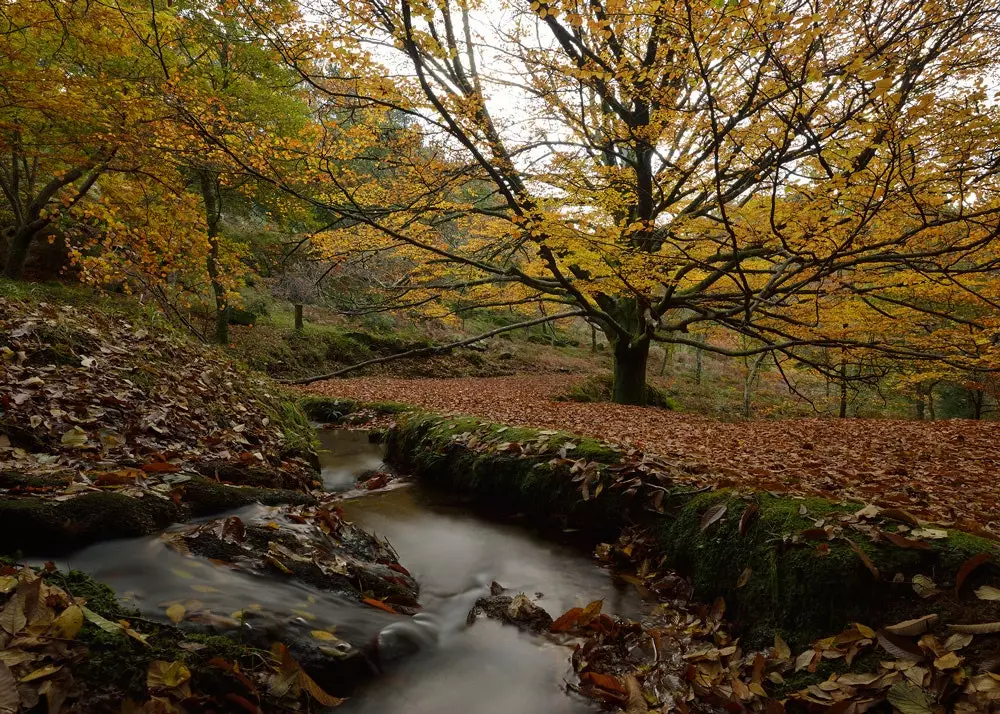
The first Natural Park in Galicia: Monte Aloia Natural Park
CNT. To unwind and relax, the Japanese practice shirin yoku (bathing in the forest; in Japanese), a meditative technique that consists of walking through the trees mindfully, using all five senses. Can nature help us to practice mindfulness and be more creative and happy?
O.N. Yes. Country people we have practiced this type of exercise naturally and without the greatest philosophical conscience.
CNT. *Now you live in Monforte de Lemos, in the Ribera Sacra, where you teach at an institute. How would you describe this population? *
O.N. It is a small, very Castilianized city that lives with its back to Galician culture. As a teacher I strive to instill in my students a love for their land and their language. I believe in the transformative power of education.
CNT. Where do you like to spend the summer or go on vacation?
O.N. to anywhere in the world, accompanied by who I love.
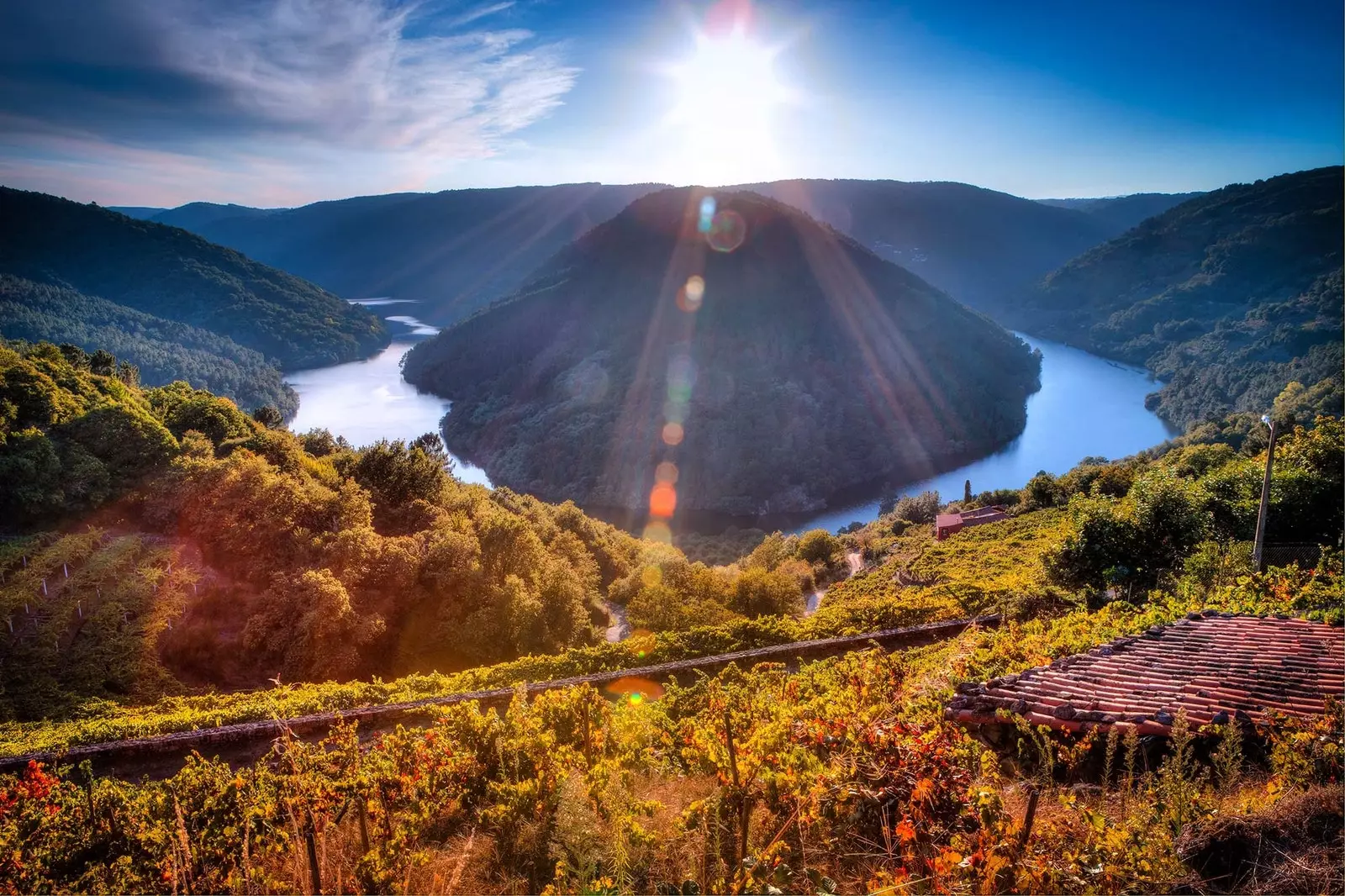
As a teacher in the Ribeira Sacra, she strives to instill in her students a love for their land and their language.
CNT. What is your favorite beach?
O.N. Either coast Galicia, the end of the known world, the beginning of the world that remains to be known.
CNT. What mountain bewitches you?
O.N. The O Courel Mountain, in the foothills of my native valley. Birthplace of a beloved poet: Uxío Novoneyra.
CNT. What hiking route would you recommend doing?
O.N. The infinite paths of my village, which they twist with the necessary syntax of the walker's feet. Some of them have been closed by the brambles of depopulation, but my mind walks through them, my dream goes through them every night.
